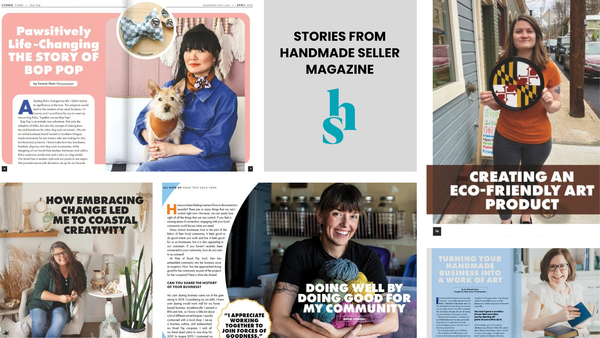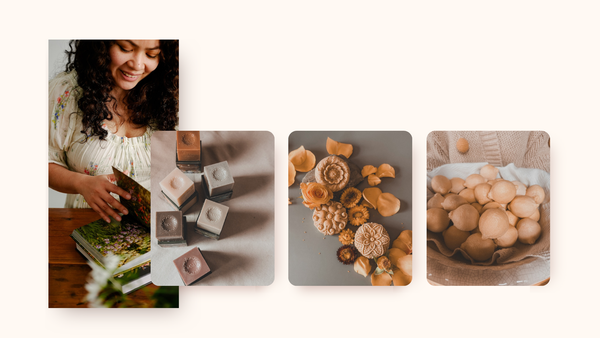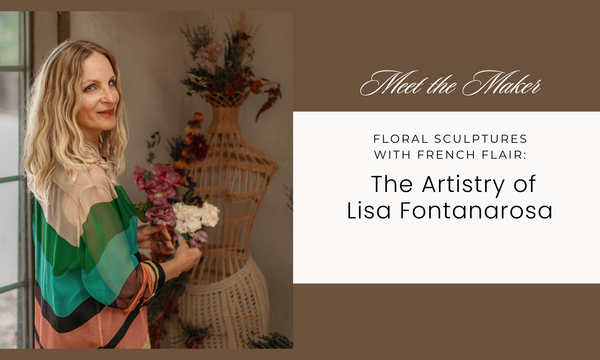Ink and Intuition: Artist Carol Cannon Shares Her Wisdom
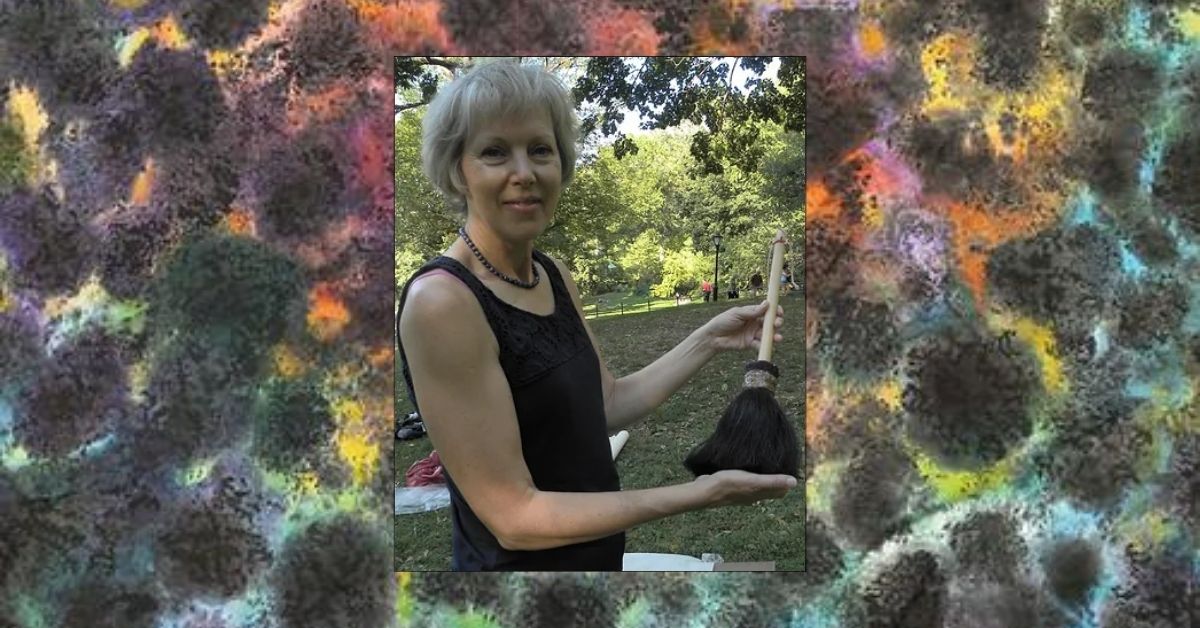
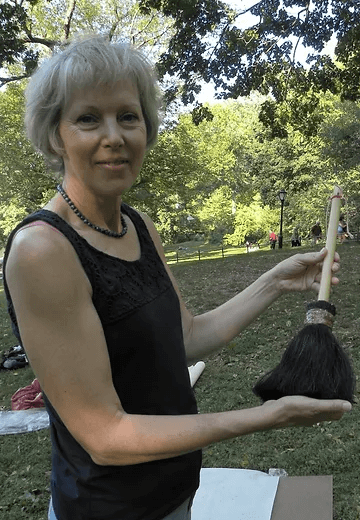
Where ink and meditation intersect, artist Carol Cannon weaves her intimate connection with the natural world into an expression of fine art. Carol’s craft embodies a fluid conversation between the creative force within and the tangible tools at her fingertips. From the sanctuary of her studio, Carol’s art narrates her profound dialogue with the elements and the divine.
In this interview, we explore the cornerstones of Carol’s philosophy as an artist and entrepreneur. She reflects on success, inspiration and how the art world has changed over the years. Carol also divulges how she measures success as an artist entrepreneur. Spoiler alert: it’s not by sales.
Take in her wisdom for artist entrepreneurs in her interview.
Describe your genre.
I work in ink these days on many different surfaces, including rice paper and microfiber.
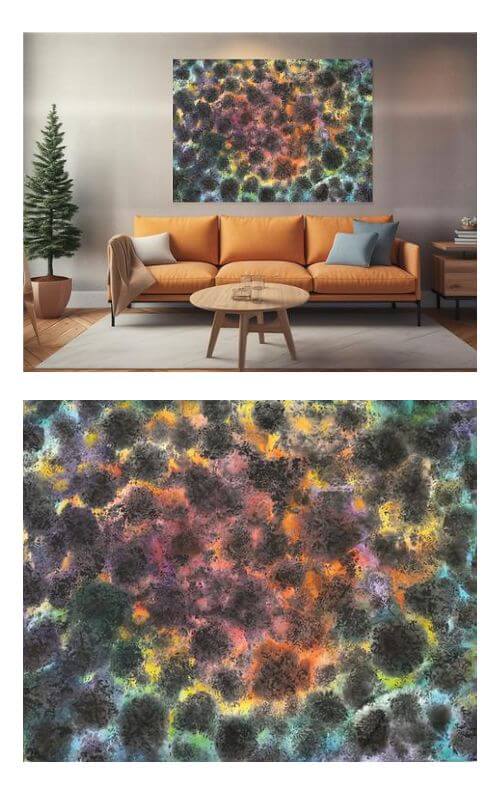
How did you get started creating your art or creative product?
My parents are both artists, so I’ve been in the art world all along. However, I did not take it seriously as a career path until about three years after high school, when I started to ask myself, “What do I really want to do with the rest of my life?” I realized that my only consistent desire was to paint the images that came to me in meditation.
When did you realize that you could turn your art into a business?
After going to art school, I had expected to be an illustrator. Everyone would always ask me, “Well have you been published before?” Unfortunately, I hadn’t been, but I knew that if they gave me a job, I’d be able to do it and then eventually be able to answer “yes” to that question. Then, I met someone who introduced me to decorative painting, and they let me borrow all these videos of Leonard Pardon teaching—so I taught myself how to decorative paint and the work just started to come organically after that.
How do you define success for your business?
If you would have asked me a few months ago, I would have defined it by every month increasing sales of my artwork. But now, I realize it is my relationship with my art. If I’m spending more time in the studio and going deeper into my work, I know now that is where I find success as an artist.
Where do you find inspiration for your work?
I find inspiration from going deep within my meditation, particularly with the right kind of music. I also find it by being out in nature and asking the elements to work through me—whether that’s the ocean or the air or the mountains—and allowing the energy to move through me. It’s all about spontaneous self-expression.
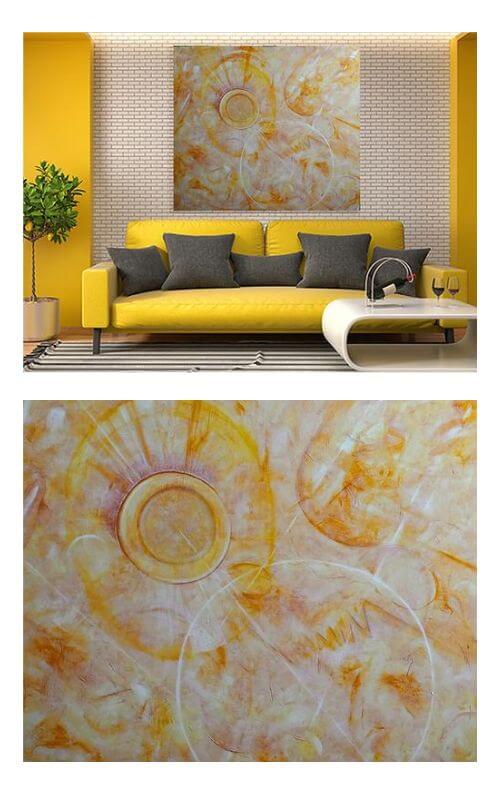
What’s one piece of advice you wish someone had given you when you first started your business?
The art world has changed so much from the time that I was growing up and was a teenager or in my 20s. Back then, it wasn’t that difficult to be able to go to some of the most upscale galleries in New York and casually talk with gallery owners and show them your work. Now, since the art world has exploded, if anyone could have known what it would be like now, I wish someone would have told me to pursue art in another way, like teaching or doing it on the side for personal pleasure.
What advice would you give to someone who wants to start selling their art or creative product?
Go to art fairs and speak to gallery owners. Find a booth at an expo where a gallery has art on display similar to yours and have ten or so strong images of your work that you can share with them right then and there.
What’s something our audience would be surprised to learn about you?
Had circumstances been different and my psyche were different, I would have had an enormous body of work of very large paintings. They would have expressed the tremendous power I believe lives with me—physically, spiritually, emotionally. I have not had the finances needed to pursue art full-time, and now that I am older, I don’t have the energy anymore. However, internally, I’m a big creative force, but I don’t necessarily have the body of work one would think would represent that.

As creatives, we can be continuously creating and refining our art. How do you handle perfectionism?
I was so inspired by the Moroccan artist Ahmed Yacoubi, who was so meticulous with his art. He took a very solemn and sacred approach. So, now when I’m working, I think to myself, “I have to sand the primer on my canvas really well, or if I’m matching a color, it has to be exact.” I hold myself to a very high standard. I think a certain amount of perfectionism might go a long way for a lot of artists today, who don’t have a lot of regard for technique or materials.
What’s a cause you are passionate about?
What I am most passionate about when I am doing my painting is to communicate that there is a divine, high energy that is a unifying substance we’re all made of. It’s permeating everything, and we all have access to it. Readers can learn more about how I incorporate this into my paintings and daily life on my YouTube channel.
What brings you joy?
First, it’s when I am in communion with what I perceive as God or Goddess and all that is. Next, it’s when I am giving creative expressions to that. After that, it would be holding a workshop where I am holding a space for others’ creativity to come out and for them to get in touch with their feelings, allowing them to access buried ideas or memories.
Thanks, Carol Cannon! You can learn more about her work at www.carolcannonfinearts.com.
Editor’s Note: This interview has been edited for length and clarity.

